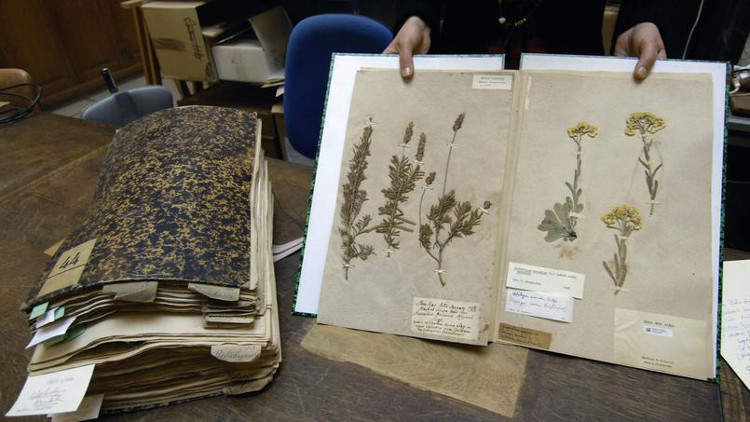Consumption of a 230-year-old French plant was destroyed by Australian customs
A rare incident occurred, causing irreparable damage to the French National Museum of Natural History, when 105 acres of vegetation in a 230-year-old specimen owned by the Museum were lost. Australian authorities destroyed by lack of quarantine papers.
This precious ancient specimen, comprised of 105 acres of plants dating back to the 19th century, was sent to scientists at the Brisbane, Queensland city specimen of the National Museum of Natural History.
In December 2016, Australian researchers asked the French Museum to help by lending the ancient template. In the field of science, this exchange is very popular, even necessary, to promote international research. After a lot of administrative procedures, the French side could send the template to Australia in March 2017.
According to the Guardian newspaper, the template was destroyed by Australian customs "due to lack of quarantine papers" . These documents certify that there are no bacteria in the specimens transferred into Australian territory. Usually they are used for importing tropical fruits or live animals, which are very rare for templates.

Ancient templates include plant samples.(Photo: AFP).
Unfortunately, a few days after being examined, the ancient French template was destroyed without notifying the owner. "This is an irreparable loss , " said Michel Guiraud, director of the French Museum's collection director . In this template there are 6 typical samples containing all the criteria that allow a full description of a plant species.
In Australia as well as in France, scientists are surprised and regret the information above."They destroyed the traces of biodiversity 200 years ago, which are important references when they want to study climate change," explains Michel Guiraud. According to an Australian researcher, in destroyed specimens there are very ancient and difficult to collect samples, specimens even no longer exist in nature today.
Lucie René, who is pursuing a master's degree in paleontology at the French National Museum of Natural History, emphasized the importance of modeling in helping graduate students have a vision of the diversity of real systems. objects at a precise time in the history of the planet. In terms of heritage, this ancient template also allows people to learn the scientific knowledge and methods of a period in the past, through techniques and materials used to conserve plant species.
Thanks to digital technology, researchers at the French Museum are still able to observe destroyed specimens on their computer screens. However, this is only a humble consolation, because they cannot access the organic material of those plants anymore. According to Michel Guiraud, the French Museum will suspend the lending of templates and will find out whether it is a rare incident or indeed administrative procedures are a serious threat to the collections. precious episodes.
- 9 customs to welcome exciting new year in the world
- Traditional customs 'must definitely do' on 30 Tet
- List of the most bizarre Christmas customs in the world
- All of us are
- Unusual magical customs in the world
- Traditional customs for the lucky year
- The 10 most incredible customs in the world
- The strange sex customs in the world
- Exotic customs are only found in Indonesia
- Scientific explanation for painful customs with girls in Africa
- Elon Musk's battery factory repaired an Australian state power failure in 140 seconds
- Customs clearance after reaching the moon
 Discovered an ancient centipede fossil 99 million years old
Discovered an ancient centipede fossil 99 million years old Discovered bat-like dinosaurs in China
Discovered bat-like dinosaurs in China Discovered a 200-year-old bronze cannon of the coast
Discovered a 200-year-old bronze cannon of the coast Discover 305 million-year-old spider fossils
Discover 305 million-year-old spider fossils